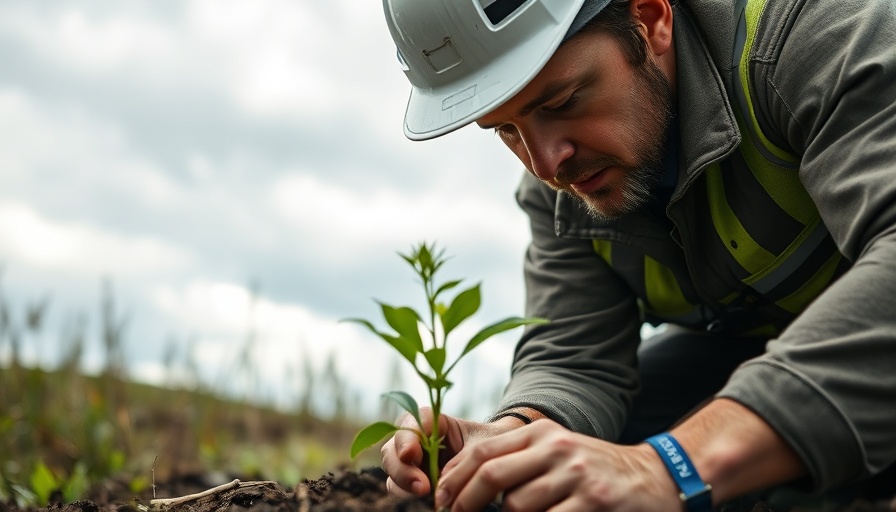
The Fight for Justice: Local Communities vs. Big Oil in Nigeria
In the heart of Nigeria’s Niger Delta, communities like Bele and Ogal are grappling with the consequences of international oil exploitation. For decades, local fishermen like Dawari Stanford have relied on the rich marine life that once thrived in their waters. However, oil spills, primarily linked to the negligence of oil multinationals like Shell, have devastated their livelihoods.
In the video 'Nigerian communities vs. Big Oil | DW Documentary', the urgent crisis faced by communities in the Niger Delta is examined, showcasing their fight for justice and environmental reclamation.
Oil Pollution: A Lethal Legacy
The Niger Delta is recognized as one of the most polluted places on Earth. The United Nations has reported harmful hydrocarbon levels, exceeding safe drinking water limits by nearly 900 times in the Agali area—a statistic that highlights the dire health risks faced by residents. Esther Obe, a midwife from Agali, illustrates the tragic impact of contaminated water on her community, particularly on the health of children and pregnant women. "We already know that the water in Agali is polluted," she states, a grim reality echoed across the Delta’s oil-bearing communities.
A Legal Struggle for Survival
In a desperate bid for justice, the beleaguered communities are taking legal action against Shell to demand compensation for the irreparable damage done to their environment. Despite the company’s assertion that oil theft is to blame for spills, locals maintain that Shell’s neglect of infrastructure is the primary cause of their plight. This ongoing legal battle raises questions about corporate accountability and environmental justice, especially in nations where the regulatory framework is often weak or nonexistent.
Hope for Recovery: The Role of Local Activism
Activism within the Niger Delta is gaining momentum as local leaders champion sustainability efforts. Individuals like Fineface Dum Namina are striving to replace illegal oil refining with solar power initiatives, targeting the dual issues of environmental cleanup and energy poverty. The goal is to foster self-sustaining communities that rely less on environmentally damaging oil practices. As noted by Princess Jordan, a plant scientist specializing in mangroves, the restoration of natural habitats is not merely ecological—it is vital for the cultural and economic revival of these communities.
The Path Forward: A Call for Global Solidarity
The ongoing struggle of communities in the Niger Delta sheds light on the broader implications of corporate exploitation in resource-rich countries. As global citizens and advocates for environmental justice, it is crucial that we stand in solidarity with these communities, amplifying their voices and pushing for accountability from oil giants. This is not just about oil; it is about the right to health, livelihood, and environmental integrity.
In conclusion, the fight against Big Oil in Nigeria exemplifies the urgent need for reforms that prioritize people over profit. We must advocate for policies that protect vulnerable communities and hold corporations accountable for their actions. Will you join the cause for justice for the people of Niger Delta? Your voice matters.
 Add Row
Add Row  Add
Add 




Write A Comment